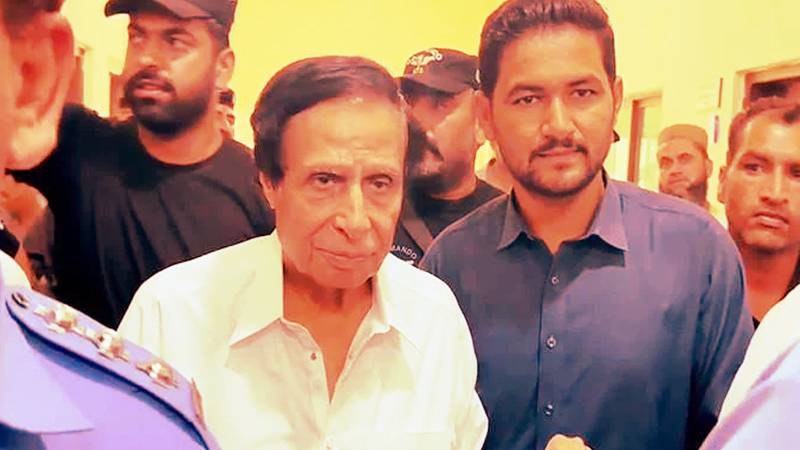
In the case of unlawful appointments, a local court in Lahore granted a two-day extension on Saturday for the physical remand of Pakistan Tehreek-e-Insaf (PTI) President Parvez Elahi, who is still detained at Adiala jail.
The court placed the former chief minister of Punjab in judicial detention for 14 days in the case on September 19, and he was subsequently taken to prison.
Following party chairman Imran Khan's first detention on May 9, Elahi is one of numerous PTI leaders and workers who have been detained as part of the state's crackdown on the PTI leadership in the wake of the deadly riots throughout the nation. Later, after several more cases, including the unlawful appointment charges, were launched against him, he was detained several more times.
The Anti-Corruption Establishment (ACE) requested a 12-day physical remand, and today the court granted the extension in his remand while reading the reserved verdict of Judicial Magistrate Imran Abid.
Elahi was brought before the court following the conclusion of a two-day physical remand. The ACE officials told the court that "more interrogation of Elahi is required" as they asked for a 12-day physical remand extension.
Elahi's lawyer countered that the PTI president had not received any payment for "illegal appointments" and that the Rs3–4 million amount had no significance for the PTI leader.
Elahi has been detained on various occasions since June 1st. The most recent arrest occurred on September 18th, according to the Punjab ACE.
The body alleged that the appointment of Muhammad Khan Bhatti as his principal secretary during his time as the CM was not in accordance with the law.
As per the information furnished by an ACE spokesperson, Elahi illegally filled 12 grade 17 slots in the Punjab Assembly.
Through the falsification of documents, the candidates were chosen for the provincial assembly. "Fake testing services were used to make the illegal recruitments," the spokesperson said.

